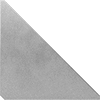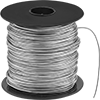Filter by
Material
Steel Grade
Tolerance Rating
Appearance
Hardness Rating
Mechanical Finish
Yield Strength
ID
Heat Treatment
DFARS Specialty Metals
About Steel
Compare over 50 grades of steel and cast iron to find the right material for you—all with material certificates for traceability.
































































